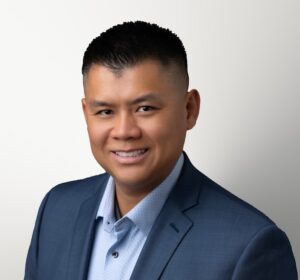Imagine entrusting your shoulder surgery to a highly skilled and dedicated specialist who has devoted years of their life to mastering the intricacies of their craft. That’s precisely what you get when you choose a fellowship-trained shoulder surgeon like Dr. Eric Giang, the only fellowship-trained shoulder surgeon in Modesto, CA.
In this blog post, we’ll explore the journey of becoming a fellowship-trained shoulder surgeon, the real world benefits for patients, and how to choose the right surgeon for your needs.
Key Takeaways
- Fellowship-trained shoulder surgeons provide specialized expertise and commitment to excellence in the field.
- Becoming a fellowship-trained shoulder surgeon requires extensive medical education, orthopedic residency, and specialized training programs.
- Patients benefit from accurate diagnosis, advanced surgical techniques & technologies, comprehensive rehabilitation support and dedicated patient care from experienced professionals such as Dr. Eric Giang.
The Value of a Fellowship-Trained Shoulder Surgeon
Fellowship-trained shoulder surgeons distinguish themselves from general orthopedic surgeons through their specialized expertise. They have dedicated years of their lives to mastering complex shoulder procedures, ensuring your shoulder receives the best possible care. Opting for a surgeon with such specialization instills confidence in their ability to accurately diagnose and treat any shoulder condition, from routine issues to complex problems.
The journey to becoming a fellowship-trained shoulder surgeon is rigorous and highly competitive. These surgeons have not only completed medical school and an orthopedic residency but have also participated in prestigious shoulder surgery fellowship programs. This intensive training ensures that they possess both the skill set and commitment to excellence that patients deserve.
Specialized Expertise in Shoulder Surgery
A wide array of shoulder procedures, from minimally invasive techniques like arthroscopy to complex fracture repairs and shoulder arthroplasty, is within the repertoire of fellowship-trained shoulder surgeons. They are adept at diagnosing and treating both common and complex shoulder pathologies, ensuring that patients receive the highest level of care possible.
During their fellowship, these elbow surgeons refine their skills in various techniques and methodologies, such as diagnostic shoulder arthroscopy, shoulder replacement, and more. They also benefit from a nurturing learning environment that promotes cooperative care and exposes them to a robust volume of surgical cases, ensuring they are well-prepared for the challenges they will face in their careers.
Commitment to Excellence and Continued Learning
Dedicated to staying abreast of the latest advancements in their field, these surgeons ensure patients receive the most current treatments available. They participate in ongoing research and mentorship, allowing them to gain valuable insights into emerging techniques and technologies. Continual engagement in research and staying updated with the latest surgical techniques allow these surgeons to provide their patients with the best possible care.
The Journey to Becoming a Fellowship-Trained Shoulder Surgeon
The path to becoming a fellowship-trained shoulder surgeon is a challenging and rewarding one.
It begins with:
- Medical school
- Orthopedic residency to lay the foundation for treating musculoskeletal conditions
- Specialized shoulder surgery fellowship program, where surgeons gain advanced training in the latest techniques and technologies specific to shoulder conditions and treatments.
There are several renowned shoulder surgery fellowship programs in the US, such as the Shoulder and Elbow Surgery at the Carrell Clinic in Dallas, TX, where Dr. Eric Giang received his fellowship training. These programs provide access to leading experts in the field, as well as opportunities for basic science research and insight into the most advanced treatment methods available.
Medical School and Orthopedic Residency
During medical school, aspiring shoulder surgeons receive comprehensive training in musculoskeletal science and are introduced to the fundamental concepts of both orthopedic surgery and orthopedic surgery. They also have the opportunity to participate in orthopedic clerkships and acting internships, which provide valuable exposure to shoulder surgery and other orthopedic subspecialties.
An orthopedic residency program then builds upon the foundational knowledge acquired during medical school. Residents receive comprehensive training in orthopedic surgery, musculoskeletal research, and exposure to all major subspecialties within orthopedics. By the end of their residency, they are well-prepared to be proficient orthopedic surgeons and leaders in their field.
Shoulder Surgery Fellowship Programs
Shoulder surgery fellowship programs offer a unique opportunity for surgeons to gain additional training in advanced techniques and technologies specific to shoulder conditions and treatments. These fellowship positions are highly competitive and provide an unparalleled level of expertise in the field of shoulder surgery.
These programs provide fellows with access to leading experts, advanced technologies, and cutting-edge research in the field of shoulder surgery.
Real-World Benefits for Patients
Opting for a fellowship-trained shoulder surgeon ensures patients of accurate diagnosis, advanced surgical techniques, and comprehensive rehabilitation support. This level of care ensures that patients experience the best possible outcomes and return to their daily activities as quickly and safely as possible.
Dr. Eric Giang, a leading fellowship-trained shoulder surgeon, exemplifies this commitment to patient care. With his impressive background in education, training, research, and patient care, Dr. Giang offers an unparalleled level of expertise in shoulder surgery and is dedicated to helping his patients achieve the best possible outcomes.
Accurate Diagnosis and Treatment Planning
Surgeons like Dr. Giang, equipped with fellowship training, have the requisite expertise to:
- Accurately diagnose complex shoulder conditions
- Develop effective treatment plans
- Assess and interpret imaging studies and physical examination findings specific to the shoulder
This ensures that patients receive the most appropriate treatment for their condition. In addition to their expertise in diagnosis, fellowship-trained shoulder surgeons have access to a wide range of treatment options, including both surgical and non-surgical approaches. This allows them to develop a customized treatment plan tailored to each patient’s unique needs and goals, ultimately leading to better outcomes and patient satisfaction.
Advanced Surgical Techniques and Technologies
Surgeons like Dr. Giang, who have undergone fellowship training, are adept at the latest surgical techniques and technologies, including:
- Arthroscopic surgery
- Total shoulder replacement
- Reverse shoulder replacement
- Revision shoulder surgeries
- Arthroscopic rotator cuff repair
- and more
These advancements in shoulder surgery can not only improve patient outcomes but also may lead to faster recovery times.
The utilization of minimally invasive techniques may be particularly beneficial, as it results in:
- Decreased pain and discomfort
- Reduced risk of complications
- Shorter recovery periods
- Minimal disturbance to the shoulder’s anatomy
- Decreased postoperative inflammation
- Lower risk of infection
compared to traditional open surgery methods.
Comprehensive Rehabilitation and Recovery Support
Comprehensive rehabilitation and recovery support are integral to the success of shoulder surgery. Fellowship-trained shoulder surgeons, like Dr. Giang, understand the importance of this process and work closely with their patients to ensure they receive the care they need to return to their daily activities as quickly and safely as possible.
This approach includes:
- Developing a customized rehabilitation program
- Providing pain management techniques
- Educating patients about their condition and treatment
- Monitoring their progress through regular follow-up appointments
In addition, fellowship-trained shoulder surgeons collaborate with a multidisciplinary team of healthcare professionals, ensuring patients receive a comprehensive and coordinated approach to their rehabilitation and recovery.
Dr. Eric Giang: A Leading Fellowship-Trained Shoulder Surgeon in Modesto, CA
Dr. Eric Giang is a leading fellowship-trained shoulder surgeon, boasting an impressive background in education, training, research, and patient care. As the only fellowship-trained shoulder surgeon in Modesto, Dr. Giang is uniquely positioned to provide patients with the highest level of expertise in shoulder surgery.
His commitment to excellence is evident not only in his clinical practice but also in his contributions to research and the advancement of the field of shoulder surgery. Dr. Giang’s publications, presentations, and lectures showcase his dedication to staying current with the latest techniques and technologies, ensuring his patients receive the best possible care.
Additionally, his extensive education and training have equipped Dr. Giang with the expertise necessary to diagnose and treat a wide range of shoulder conditions, from common issues like rotator cuff tears to more complex problems such as shoulder instability and degenerative joint disease. His dedication to his craft translates into exceptional care for his patients.
Patient Testimonials
Patients who have been treated by Dr. Giang consistently praise his exceptional care, expertise, and dedication to their well-being. They appreciate the time he takes to thoroughly explain their condition and treatment options, as well as his comforting and reassuring nature.
These testimonials serve as a testament to Dr. Giang’s commitment to providing the highest level of care for his patients. By choosing a fellowship-trained shoulder surgeon like Dr. Giang, patients can be confident that they are in the hands of a skilled and compassionate professional who is dedicated to helping them achieve the best possible outcomes.
Choosing the Right Shoulder Surgeon for You
Choosing a shoulder surgeon necessitates an evaluation of their credentials, experience, and their dedication to staying abreast of advancements in the field. This includes reviewing:
- their medical training
- residency
- fellowship in orthopedic surgery
- subspecialty focus on shoulder surgery
Additionally, ask questions about the surgeon’s approach to diagnosis, treatment, and rehabilitation, as well as their success rates and patient satisfaction. By gathering this information, you can make an informed decision and choose the right shoulder surgeon to meet your unique needs and goals.
Evaluating a Surgeon’s Credentials and Experience
The assessment of a surgeon’s credentials and experience requires a review of their education, training, and experience in shoulder surgery. This includes their medical school education, orthopedic residency, and any additional training they may have received in shoulder surgery.
Furthermore, consider their commitment to staying current with advancements in the field, as this can have a direct impact on the quality of care they provide.
It’s also essential to evaluate their experience in treating shoulder conditions, including their success rates and patient satisfaction. By reviewing this information, you can gain a better understanding of their expertise and ensure they are well-equipped to provide the best possible care for your shoulder condition.
Asking the Right Questions
As potential shoulder surgeons are evaluated, questions about their approach to diagnosis, treatment, and rehabilitation should be asked. For example, inquire about:
- Their experience with various surgical techniques and technologies
- Their approach to postoperative care and rehabilitation
- Their success rates and patient satisfaction
This will give you a better sense of their overall expertise and commitment to patient care. By asking the right questions and carefully evaluating a surgeon’s credentials and experience, you can make an informed decision and choose the best shoulder surgeon for your needs. This will help ensure that you receive the highest level of care and the best possible outcome for your shoulder condition.
Summary
Choosing a fellowship-trained shoulder surgeon, like Dr. Eric Giang, ensures that you receive the highest level of expertise and care for your shoulder condition. From their specialized training and commitment to staying current with advancements in the field, to their dedication to providing personalized care and support throughout the diagnosis, treatment, and rehabilitation process, fellowship-trained shoulder surgeons are the best choice for patients seeking the best possible outcomes.
By carefully evaluating a surgeon’s credentials and experience, and asking the right questions, you can confidently choose the right shoulder surgeon to help you return to your daily activities as quickly and safely as possible.
Frequently Asked Questions
What does it mean when a surgeon is fellowship-trained?
Fellowship training allows a surgeon to become an expert in a subspecialty by spending time closely working with a specialist. This advanced training means the surgeon can offer specialized services to patients.
How long is a shoulder fellowship?
A shoulder fellowship typically lasts one year and is accredited by organizations such as the American Shoulder and Elbow Surgeons (ASES). Fellows will develop a comprehensive understanding of the diagnosis and treatment of shoulder and elbow disorders during this period.
What is difference between fellowship trained and board certified?
Fellowship training is a selective one-year program for top residency candidates, while board certification requires 3-7 years of additional training and testing.
What sets a fellowship-trained shoulder surgeon apart from a general orthopedic surgeon?
Fellowship-trained shoulder surgeons have dedicated years to mastering complex procedures, possess specialized expertise, and are committed to delivering superior care; making them stand out from general orthopedic surgeons.





